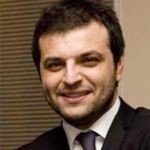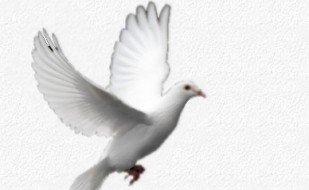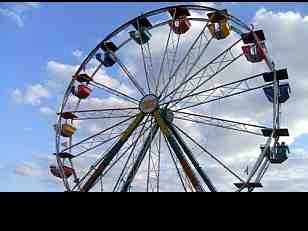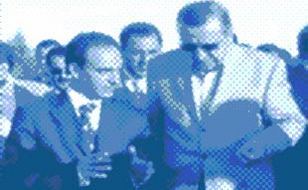Roni Yildirim interviewed Ertugrul Kürkcü in La Hague. The interview was published in the Yeni Özgür Politika newspaper in Germany on 31 December. The first part of the interview was published here yesterday. In the second part, Kürkcü discusses society and media.
During this heated period, the attitude of the Turkish media is interesting. We can see that the media institutions are pursuing an extremely militarist media policy...
It has always been the case that the Turkish media, particularly when military issues are concerned, does not go beyond the lines drawn by the General Staff. But with this operation, they are acting even more fanatically than the General Staff wants them to. I have observed this carefully: The General Staff and the government especially try to avoid language which could hurt the feelings of Kurdish people; rather, with the use of guns they are trying to separate people technically. When formerly they used to avoid the term "Kurds" they now use it consciously in order to show that they harbour no ill intentions towards them. This is their strategy of communication. But when you look at the Turkish media, they write "we killed this many", without thinking about the experiences of the families, parents, spouses and children of those killed. They do not even consider the hurt and anger their language can cause.
What is the reason for the fanaticism of the Turkish media?
I can say that the media is acting just like the sports media at football matches. More agitation brings more interest, and thus more sales. They are not thinking properly. They enjoy being part of this social agitation, and it goes like a spiral: They give the impulse for more nationalism in society, and when nationalism increases, the media believe they have to keep up with it.
A second issue is this: It is the headlines that talk like this; apart from a few mad or thoughtless people most columnists interpreted the cross-border operations in a very sober manner and tried not to encourage war. They tried to create opinions. This is a very interesting aspect. Of course most people, apart from some mentally ill people everyone was against war. They did not say, "Let's go and invade Northern Iraq." But the headlines said different things. Thus the media was playing a double role. While they were calling on decision makers to be levelheaded, they incited the people. [...] People have started to believe that Northern Iraq is actually a part of Turkey, and tht Musul and Kerkuk are Turkish cities. There is a sense as if they are going to save their own territory. The media is continuing to play this unfortunate role and is being directed by ignorant people. They do not think in detail about what they are doing and what strategy to follow. They think like hooligans. In summary, the mainstream media is doing war journalism, not peace journalism.
What is the point of a formented civil war?
Of course the atmosphere at the moment is worse than before. We see that non only among Turks, but also among Kurds, the will to live together has weakened. We see that people tolerate, but not embrace each other. This was different 10-15 years ago. Even when there was a war with great losses every day, it was different. Kurds blamed the security forces. Turks blamed the PKK, but not Kurds in general. Now, worryingly, the Kurds are being talked about as a negative subject, even among Turkey's more literate population. I even believe that the discrimination is not as violent among ignorant and less well educated people.
I can observe that there is a kind of "white fascism" going around the educated. When we look at the reasons for this, we also have to touch on something else: The losses caused by attacks of guerrillas on soldiers have caused much greater social reactions than before 2005. Of course this reaction is also due to a nationalist campaign. [...] When there is no armed conflict, the public, the media and the decision makers do not take the issue in hand, do not advertise their opinions on the issue and do not look for solutions. However, when they are "nudged" like this, then the "political solutions" become "final solutions"; in other words, they say "Let us get rid of them and solve the problem like that." I believe that peaceful activities need to be given more of a chance.
The [pro-Kurdish] Democratic Society Party (DTP) has to be supported so that it can act more freely in parliament and stop being in the defensive all the time. And those involved in the Kurdish struggle have to take some basic decisions. The issue is not one-dimensional. It is not an issue of the state formenting this kind of fanaticism; because they can find many reasons to incite such fanaticism. They key is to avoid giving them reasons. I believe it is up to the Kurds to carry the process towards a peaceful solution.
The Kurds are killed, treated with contempt, oppressed, and they do support peace...Yes, those who are in the right and whose rights are threatened are the Kurds, but they are not powerful. And those in power are not really bothered about solving the issue. I am pessimistic about this.
Let us assume that there are 65 million people living in Turkey and that 40-45 million are Turks and others, and that 20-25 million are Kurds. This means that in order to have success, the Kurds must draw at least a third of the others onto their side. This will not happen with only the efforts of the left, the revolutionary movement, the democrats and the progressives. I believe that the strategy has to be well-planned from the beginning.There are enough [DTP] MPs in parliament to have formed a group. We have local elections ahead of us. If necessary steps are taken at the local elections, then a new power of representation will be gained. It is important to open the way for this. The increase in nationalism is not only due to the agitation of the state. It is is also a side effect of the armed conflict.
In 1992-1993 there were more losses on both sides, but there was not such a nationalist wave. Why now?
This is related to the developments in Northern Iraq. The possibility of Iraq splitting up and thus the possibility of Turkey's borders changing in this or that way is very worrying to Turkey's leaders. They believe that the results of such a split would be uncontrollable. They can never be sure how the Kurdish population in Northern Iraq is going to act, and this leads them to see everything in terms of partition. Their relationship with America goes up and down, particularly on the issue of Iraq; when there are problems with the main ally, they feel alone in the world. This makes it easy to perceive everything as a threat.
That is why, I think, there is more tension now, when there is relatively little loss of life, compared to the past, when a thousand people a year died.
In the past we used to think like this: There is an armed force in Turkey, and they are demanding rights. But now it looks like this: "All Kurds are demanding something." And this creates a fear of partition. Of course, the fact that the Kurdish leadership in Northern Iraq pursues a very incoherent policy of compromise and contempt and the fact that the attitudes in relations with the US keep changing, make it difficult to pursue a stable policy.
How can an alternative media be created?
First of all independence is very important, that is being independent of all the great powers and being able to talk to everyone from the same distance. When Turks can criticise Turks, and when Kurds can criticise Kurds, this is a good distribution of roles. Just as I behave towards those opposing peace on "my side", an independent Kurdish media must also act like that. If an activity is perceive as wrong, this must be said out loud and clear. Those in the Kurdish revolutionary movement in Turkey who try to be different are pressurised in the area of nationalism or religiousness. This leads to a rise in nationalism and religiousness on both sides. This needs to be criticised. People benefit from peace, not war, and the voice of peace must be raised. This is not something that can be accomplished by the media alone.
The power of the independent media and alternative press is very limited. I believe that political parties and mass organisations need to act. It is important that mass organsations and trade unions have rapport with people one-to-one; the independent media can only help by providing words for these organisers. For instance, uniting the poor Kurds and oppressed Turks in Istanbul under the banner of class politics rather than identity politics is part of this political work. The independent media can aid this process but cannot initiate it. (RY/EK/AG)









